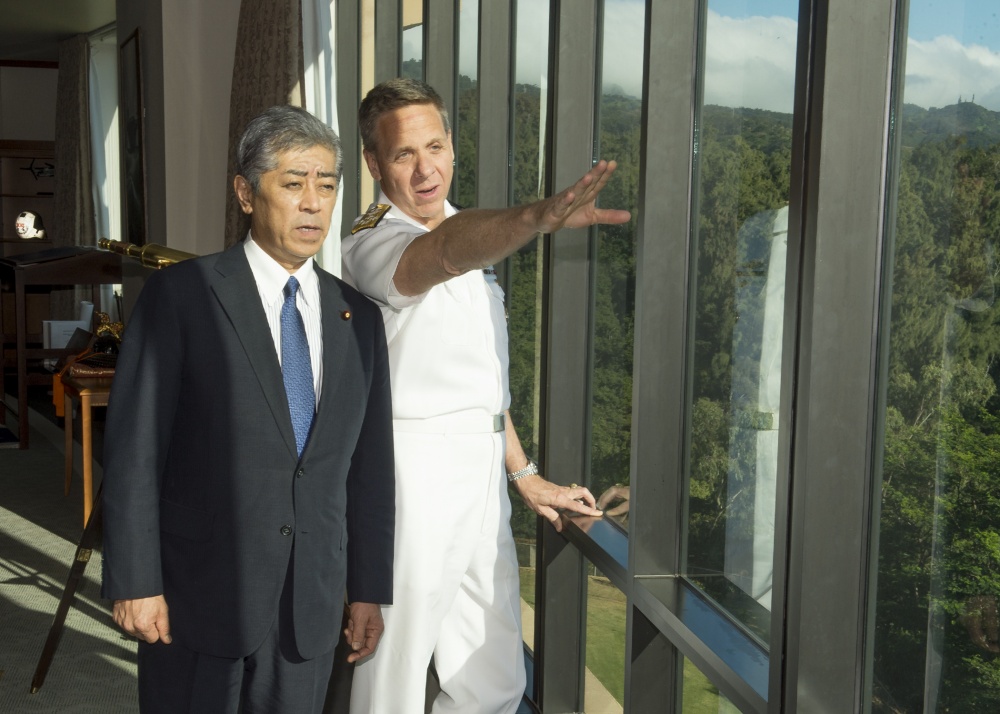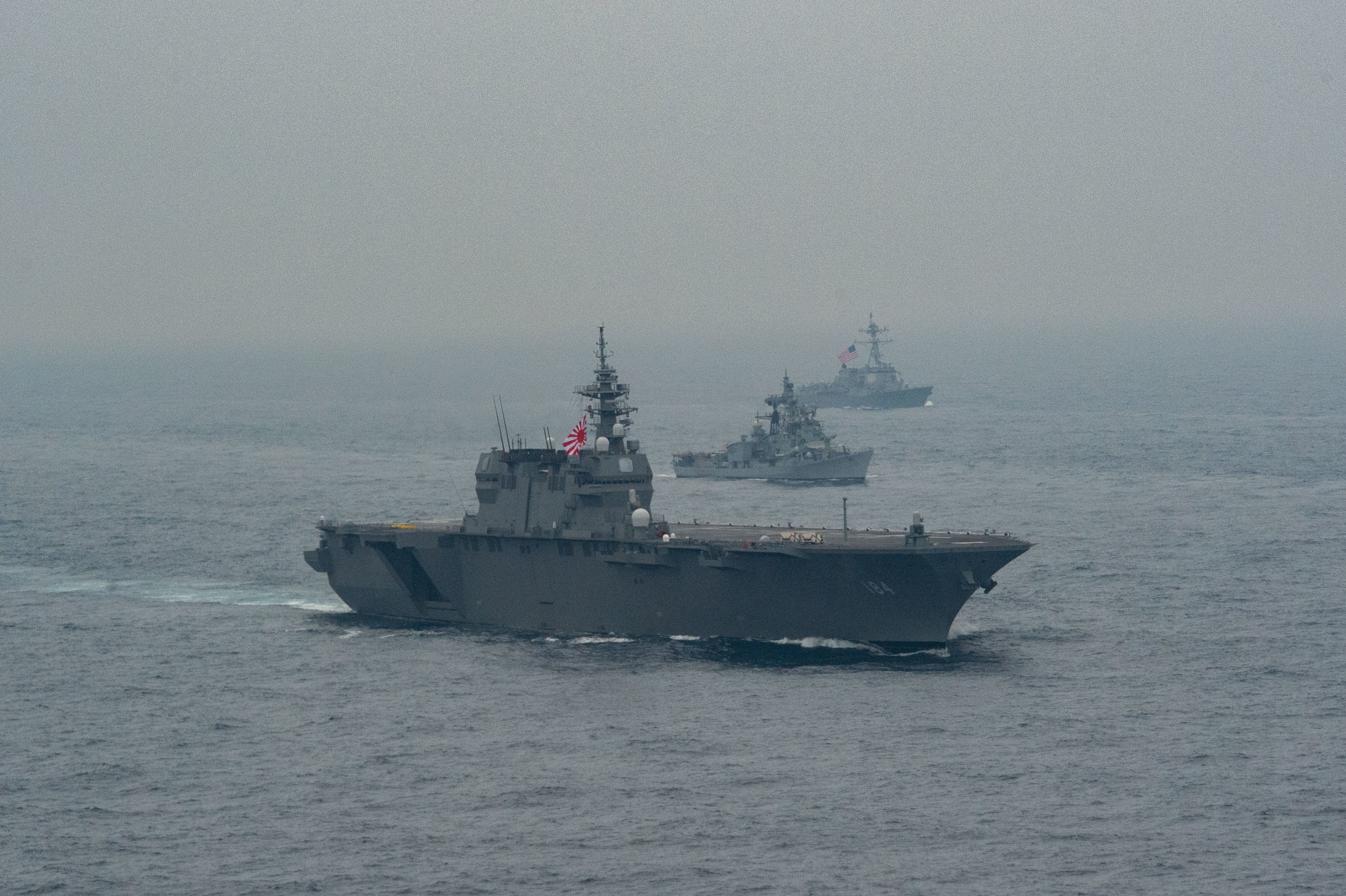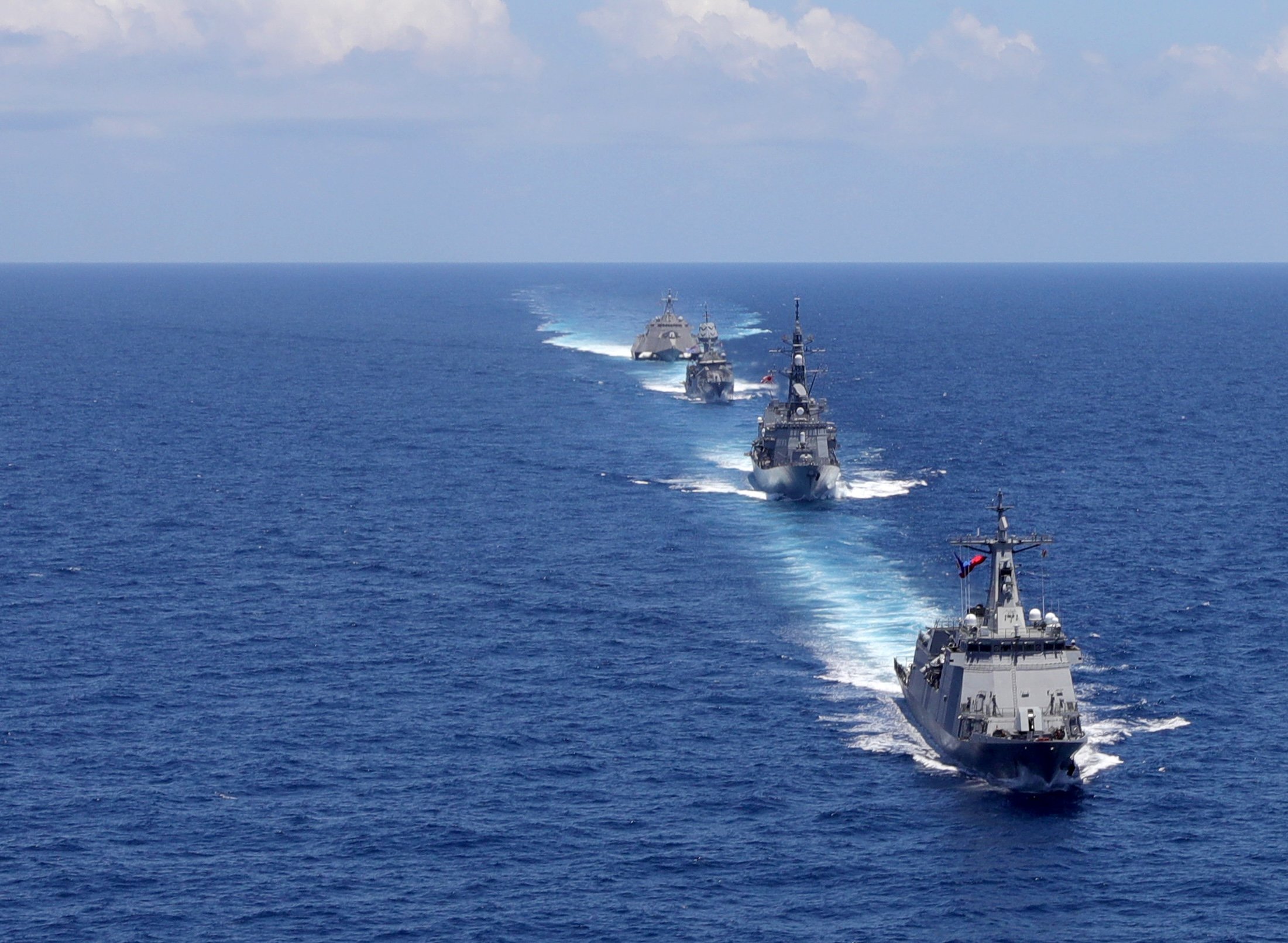
CAPITOL HILL — The U.S. will continue the recent pace of freedom of navigation operations in the South China Sea and will include allies and partners in future missions, the commander of U.S. Indo-Pacific Command told a Senate panel on Tuesday.
Adm. Phil Davidson, appearing before the Senate Armed Services Committee on Tuesday, said North Korea represents the most immediate challenge in the region but China’s behavior regarding extending its territorial and economic influence is the bigger long-term threat to maintaining the free movement of trade and people in the region.
“Through fear and coercion, Beijing is working to expand its form of ideology in order to bend, break and replace the existing rules-based international order,” Davidson said. “In its place, Beijing seeks to create a new order, one with Chinese characteristics, led by China, an outcome that displaces the stability and peace in the Indo-Pacific that has endured for over 70 years.”
The most visible form of Chinese influence is the way the nation uses islands in the South China Sea to justify its increased territorial claims. International law does not recognize many of these moves, and the freedom of navigation operations (FONOPS) are a way to let China know the international community does not accept these claims, Davidson said.
On Monday, USS Spruance (DDG-111) and USS Preble (DDG-88) conducted a FONOP, sailing within 12 nautical miles of Mischief Reef, which is an artificial island China created to increase its territorial claims to the Spratly Islands chain. This was the Navy’s second such FONOP in 2019.
FONOPS also let other nations know the U.S. is committed to engagement in the region, Davidson said. Allies and partners in the region notice when U.S. Navy ships conduct FONOPS. Other nations are now following the U.S. lead and performing their own FONOPS.
“We’ve had allies and partners in the region — the U.K., Japan, Australia, New Zealand, Canada, France, all in one form or another step up their operations in the South China Sea, and I think that shows the international community’s willingness to push back,” Davidson said.
Chinese military technological advances are cutting into what had been a decided advantage enjoyed by the U.S. military, Davidson said. China has hundreds of satellites in space and is developing fourth- and fifth-generation jet fighters in the air. The U.S. still holds an advantage when it comes to submarine forces, Davidson said.
“Continuing to build submarines is critically important,” Davidson said. “It is our most significant advantage in all domains right now.”
However, military force can only go so far. Davidson said a whole nation approach is needed to counteract China’s influence, including the U.S. Department of State diplomatic efforts such as providing economic assistance to small nations.
Davidson said the burgeoning defense relationship between the U.S. and India is already leading to other cooperative efforts, notably with information technology sharing. These arrangements show other nations in the region the power of linking to the U.S.
But the U.S. needs to consider increasing its financial investment in the region. China is using its wealth to buy influence in the region, Davidson said, and the U.S. needs to do more. As an example, Davidson said the vast majority of U.S. foreign military financing goes to U.S. Central Command rather than the Pacific.
“Right now, the Indo-Pacific Command gets just a small portion of the foreign military financing, really less than 5 percent overall,” Davidson said. “We need to take a look at where we can better put that money in the region to help compete.”
Toward the end of Tuesday’s hearing, Sen. Angus King (I-Maine) asked Davidson if he had read the recent ProPublica two-part series detailing the events leading up to, during and after the 2017 collisions of USS Fitzgerald (DDG-62) and USS McCain (DDG-56) with commercial ships. Davidson conceded to only reading the first part but not the second part of the series.
King asked for an update on where U.S. 7th Fleet stands in terms of readiness. Davidson said the Navy leadership issues quarterly reports detailing readiness, and Davidson stressed nothing was being hidden and that the Navy was transparent with its readiness.
“These two collisions were tragedies, there’s no doubt. All the senior leadership of the Navy feel an immense accountability,” Davidson said. “The fact of the matter is 280-odd ships weren’t having collisions.”
“Airplanes are landing all over America, and just because they aren’t crashing doesn’t mean they don’t need high-level maintenance. To tell me that isn’t very convincing,” King said. ” Are you saying that there were no failures that led to these collisions because there were 280 ships that didn’t have collisions? Isn’t that the standard, no collisions?”
“Yes sir, no collisions is the standard,” Davidson said.





